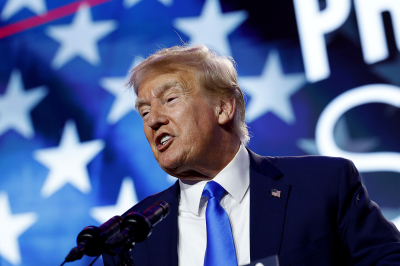5 Supreme Court cases to watch in 2024
Donald Trump and the Colorado ballot

On Friday, the Supreme Court agreed to hear arguments in the case of Donald Trump v. Norma Anderson, which centers on whether the Republican presidential hopeful can be on the Colorado ballot.
Last month, the Colorado Supreme Court released a per curiam opinion in which it ruled that Trump cannot be placed on the ballot for the 2024 election, citing his alleged ties to the Jan. 6 Capitol riot in 2021.
Specifically, the state high court cited Section 3 of the 14th Amendment of the U.S. Constitution, which prohibits individuals from holding office who “engaged in insurrection or rebellion against the same, or given aid or comfort to the enemies thereof."
"We do not reach these conclusions lightly. We are mindful of the magnitude and weight of the questions now before us," the majority opinion continued.
"We are likewise mindful of our solemn duty to apply the law, without fear or favor, and without being swayed by public reaction to the decisions that the law mandates we reach."
Colorado Chief Justice Brian Boatwright authored a dissent to the opinion, arguing that the state’s highest court went beyond its scope when it decided Trump engaged in insurrection.
"Unlike qualifications such as age and place of birth, an application of Section Three requires courts to define complex terms, determine legislative intent from over 150 years ago, and make factual findings foreign to our election code," Boatwright wrote.
"Dismissal is particularly appropriate here because the Electors brought their challenge without a determination from a proceeding (e.g., a prosecution for an insurrection-related offense) with more rigorous procedures to ensure adequate due process."




























